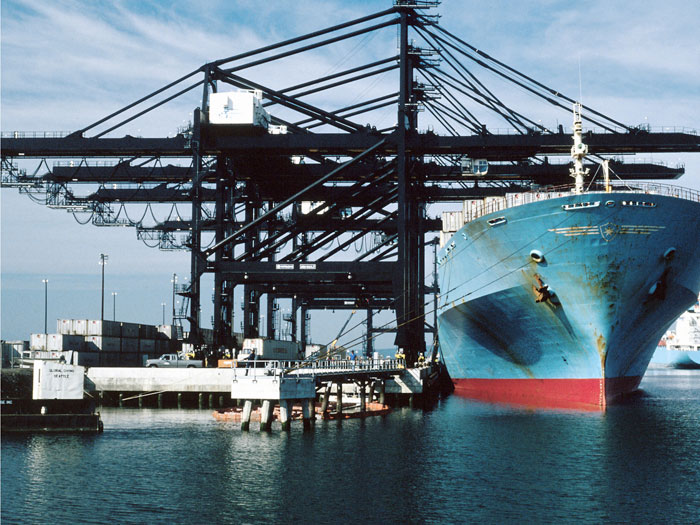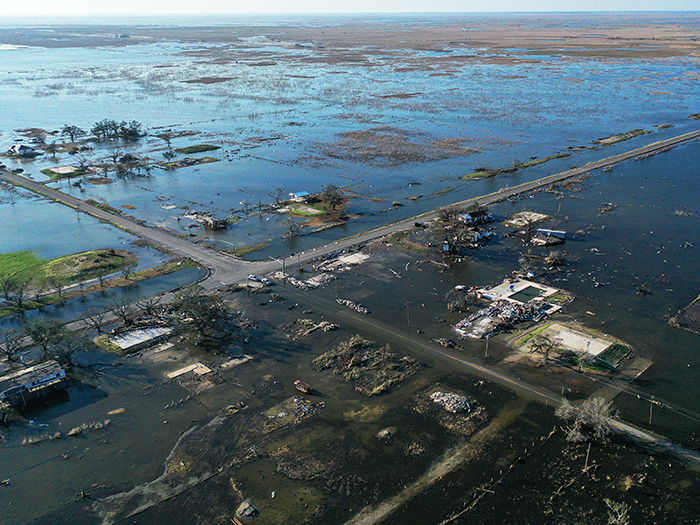Sponsored Content by Zurich
Exciting Times for Marine Insurers Who Can Manage Complexity

Multiline marine insurers are looking at exciting times within the next five years.
Driven by emerging trends in the global economy, especially in Latin America, and an expected boom in investments devoted to much-needed domestic U.S. infrastructure improvements, the marine market is primed for expansion.
However, cautions Jeanne Jankowski, head of Energy and Marine at Zurich Global Corporate in North America, only carriers who can handle complexity should be able to deliver a complete package to clients looking to take advantage of these emerging economic growth opportunities.
Jankowski said from a cargo standpoint, there are critical risk challenges surrounding freight security in fast-growing economies, in locations such as Mexico, Argentina, Venezuela and Brazil, which demand the resources and expertise to help clients maintain supply chain integrity and avoid costly losses.
Theft: A Serious Supply Chain Threat
San Francisco-based David Fowler, senior vice president at Zurich Energy and Marine, said if you look at Latin America, specifically Mexico and Brazil, you’ve got some very focused hot spots where there’s significant cargo theft happening. In Mexico, it’s Puebla, Vera Cruz and Guanajuato. In Brazil, it’s the states of Sao Paolo and Rio de Janeiro.
“The commodities most at risk are food and beverage, but when you look at the big dollar amounts of what’s being stolen, the commodity mix changes to communication devices, high-tech products, and pharmaceuticals,” Fowler said.
To combat that trend, insurance providers like Zurich, who have invested heavily in both global capabilities including global risk engineering, enjoy a tremendous opportunity to show value — mainly by working with clients to instill best practices for cargo protection against hijacking, Fowler said. That would include everything from front-loaded GPS devices for constant monitoring, to driver training, route planning and daylight hours of transit, to trucker and driver verifications.
It’s about specialization because it’s a niche business and not everyone understands it.
— Jeanne Jankowski, head of Energy and Marine at Zurich Global Corporate in North America
Fowler explained that, traditionally, GPS monitoring devices would be loaded into containers or truck trailers. Naturally, that means the security team monitoring the cargo would only be able to locate the trailer or the container post-theft or hijacking.
“An empty container isn’t worth very much,” Fowler said. “At that point, the goods have already been stolen, transported and sold elsewhere.”
Instead, a smarter risk engineering approach is to use GPS devices embedded within the cargo itself. It’s more expensive, he noted, but much more effective in tracking down stolen goods.
Another trend emerging in the U.S. and expected to surface in other locations is called fictitious pickup, wherein phony trucking firms fabricated online will show up at a warehouse or dock with what looks to be totally appropriate documents for picking up a load of cargo. But they are not who they say they are.
“We are talking sophisticated gangs focusing on cargo theft,” he said. “They keep an eye on high-value cargoes. We expect the fictitious pickup trend will be exported outside the U.S. eventually.”
For Zurich, those challenges and others mean deploying its army of more than 900 global risk engineers in foreign locations who work very closely with clients and subsidiaries of clients, devising effective strategies to help protect cargo.
Infrastructure Rising: More Opportunities, Challenges
Hull and liability are also creating buzz within the multiline marine marketplace. Mainly, Jankowski said, there is a great opportunity for growth surrounding infrastructure improvement and upgrade projects that are either happening now or will unfold over the next few years within North America.
In fact, the American Society of Civil Engineers estimates that there will be $3.6 trillion in investments needed in infrastructure by 2020 in the U.S. alone.1 Much of that investment will involve port expansion projects, bridge and tunnel projects, inland waterway dredging, levee construction and repair, and power generation.
“It has to be done for our economy to remain competitive,” Fowler said.
With economic opportunity comes risk, mainly contractors facing multiple liabilities — from heavy lift vessels, vessel liability, stevedoring and wharf operations. Many of the contractors also charter equipment so there’s charterers’ liability to consider.
“All of these situations call for comprehensive, layered insurance solutions,” he said.
Most of all, civil contractors need an insurance provider who understands these risks and has solutions available, both from a coverage standpoint as well as a risk engineering standpoint. And if a carrier has a significant presence in the non-marine construction arena as well, even better coverages can be tailored to combine with existing insurance programs.
“It dovetails the two coverage arenas to give a seamless solution to the client,” he said.
From a hull and liability standpoint, America’s much needed upgrading of infrastructure creates the need for creative solutions involving overlapping coverages and risks.
“In both of those scenarios, complexity means it’s critical that you have a dedicated practice with people that truly understand the business — from a brokerage, claims, risk engineering and underwriting perspective,” Jankowski explained. “It’s about specialization because it’s a niche business and not everyone understands it.”
Looking ahead, Zurich will be rolling out an inland marine domestic logistics product later this year. Fowler described it as a holistic solution for freight forwarders and domestic logistics providers, as it combines the coverages of motor truck cargo, warehouse legal liability and bailee liability.
Fowler said traditionally those covers are bought independently, so coverage gaps can be created in trying to piece together three or four different policies. With this product, Zurich is providing a single policy with one set of limits, on a package basis, but can be offered on a monoline basis as well.
From global expansion to massive infrastructure projects and increasing transportation and related liability challenges, the marine business is in for some true excitement in the next five years. For insureds looking to compete and avoid the risks that come with the economic rewards, it means depending on a marine insurance carrier who has the right coverage programs, risk engineering solutions, claims services and underwriting flexibility and expertise to meet those challenges.
“The world is complex. It’s changing, constantly evolving,” Jankowski said. “That’s why it takes both serious dedication and the right professional teams.” “Most of all, it requires a carrier that can take a holistic view of the overall situation and share information and really work with brokers and customers to get the best possible solution.”
——————–
1American Society of Civil Engineers Website: www.asce.org. July 2015.
This is intended as a general description of certain types of insurance and services available to qualified customers through the companies of Zurich in North America, provided solely for informational purposes. Nothing herein should be construed as a solicitation, offer, advice, recommendation, or any other service with regard to any type of insurance product underwritten by individual member companies of Zurich in North America, including Zurich American Insurance Company, 1400 American Lane, Schaumburg, IL 60196. Your policy is the contract that specifically and fully describes your coverage, terms and conditions. The description of the policy provisions gives a broad overview of coverages and does not revise or amend the policy. Coverages and rates are subject to individual insured meeting our underwriting qualifications and product availability in applicable states. Some coverages may be written on a nonadmitted basis through licensed surplus lines brokers. Risk engineering services are provided by The Zurich Services Corporation.
This article was produced by the R&I Brand Studio, a unit of the advertising department of Risk & Insurance, in collaboration with Zurich. The editorial staff of Risk & Insurance had no role in its preparation.










